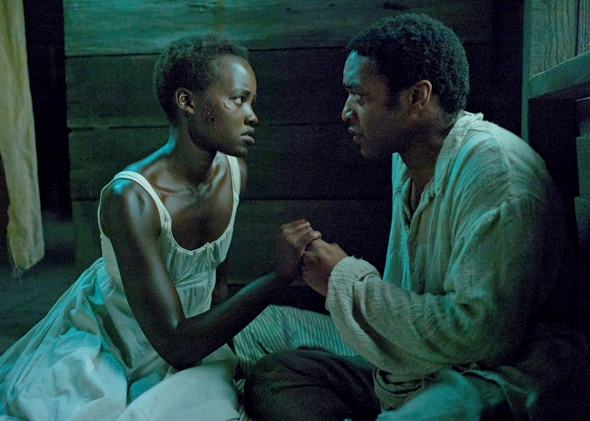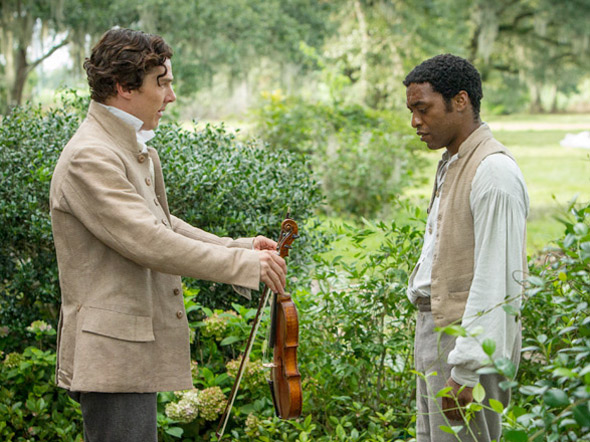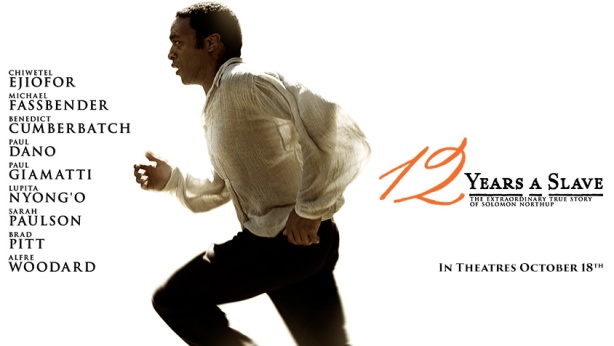Perhaps to balance out his Oscar-nominated film Precious, which had an almost all-female cast and focused on a young woman’s psychic journey out of abuse, Lee Daniels’ historical drama The Butler focuses most intently on its male characters. Oprah Winfrey delivers a terrific performance as the wife of ‘the butler’ played by Forest Whitaker, and she has a great many scenes showing how her character changes over the years, but she doesn’t get to make the overarching decisions about the family that her husband does. The hero of The Butler is Cecil Gaines, who journeys from a sharecropping childhood in the South to a decades-long post as White House butler, and the movie presents an overview of African-American history during the period as seen by both Cecil and his son Louis (David Oyelowo). The engine of the plot is how their politics and survival skills differ; this dialectic encapsulates a debate that existed in African-American culture as a whole and that persisted throughout the era.
One of the central questions addressed by the movie is: how angry should a black man be? The debate even covers Sidney Poitier’s persona: the older Mr. and Mrs. Gaines adore him and are thrilled to see a black man succeeding in Hollywood; the younger Louis and his Afro-sporting girlfriend believe that Poitier is merely the kind of non-threatening black man that whites want to see.
For much of the film, Cecil thinks the role of a black man should be to provide for his family and to be a model upstanding citizen. He gets nervous when his family discusses the brutal Emmett Till lynching even in the privacy of their home; he believes no good can come of rocking the boat, and is horrified when he sees Louis being influenced by the campaign of Emmett Till’s mother. Cecil’s position is completely understandable psychologically, since the movie begins with him as a young boy working in the fields experiencing severe trauma: he sees his mother being taken off lasciviously by their white employer and he urges his father to do something; the father makes the merest objection to the white man and is instantly murdered by him. Moreover, Cecil’s mother subsequently loses her sanity. This is absolutely overwhelming trauma for a child.
Thus, the opening prelude establishes the father and son chain, and the issue of black manhood, which will become a central concern of the film. Cecil learned early that a black man has to keep his head down and pretend to see nothing in order to survive. He perfects this skill as a waiter in a fancy hotel, and it is this ingratiating quality – the pretense that he is, essentially, just like the stereotype of the loyal black house slave contented to serve – which gets him noticed by a recruiter for the White House job.
By contrast, next-generation Louis chooses to go to school in the South – the last place on earth his father wants him to go -- deliberately to get involved with the ‘Love campaign’ and lunch counter sit-ins. The narrative of the film cuts back and forth between Louis’ growing involvement with early civil rights actions and Cecil’s experience of the movement from within the Oval Office, where he overhears presidents talking about how to handle it. The scenes of targeted civil disobedience in the South repeatedly feature the stoicism of Louis and his well-trained peers in the face of humiliating and grueling violence by whites, and Louis is even one of the people on the Freedom Rider bus which gets fire-bombed. Eventually, after all the beatings and firehosings, Louis and his girlfriend become disenchanted by Martin Luther King’s vision of non-violence, and they join the Black Panthers.
The inspiration for the movie is a 2008 Washington Post article by Will Haygood, “A Butler Well Served by This Election” (expanded since into a book). The article is a human interest story about Eugene Allen, a then 88-year old black man who worked as a White House butler for 34 years, through eight presidencies, and lived to see Barack Obama’s election. Haygood wrote of a diligent servant who “never missed a day of work, and often worked 6 days a week”, and this is reflected in the movie in Cecil’s pride in his work and his meticulous attention to detail. Director Daniels and screenwriter Danny Strong praise this diligence – and so does a civil rights group leader in one scene, who explains to the young volunteers, including Louis, that black domestics have aided the struggle in their own way, countering stereotypes with daily evidence of hard work and trustworthiness.
At the same time, however, Daniels and Strong suggest that there is a cost to this kind of selflessness: Cecil is always at work, and his wife Gloria gets lonely at home. She takes refuge in alcohol and in a neighbor (Terrence Howard). Gloria also seethes with resentment at the great interest Cecil takes in the goings on at 1600 Pennsylvania Avenue.
The movie is a giant elaboration on the Washington Post article, but it takes its central structure from one line in the original piece: “He was there while America's racial history was being remade: Brown v. Board of Education, the Little Rock school crisis, the 1963 March on Washington, the cities burning, the civil rights bills, the assassinations.” The Butler begins with Eisenhower’s reluctant enforcement of school desegregation, and then touches on key presidents and their involvement with civil rights gains and losses. JFK has an epiphany and makes a speech pledging to fight for civil rights, but is then assassinated. Lyndon Johnson’s civil rights achievements are contradicted by the private man, who is foul-mouthed and disrespectful.
The Vietnam War takes one of Cecil’s two sons and devastates Gloria. Though Cecil at first seems to support the war, which is in keeping with his overall philosophy of proving himself as a patriotic and model citizen, he eventually confides in voice-over that he doesn’t know what they were fighting for.
As Vice-President, Richard Nixon is shown courting the votes of the black White House domestic staff; as President, Nixon swears in front of Cecil that he will crush the Black Panthers and the entire Black Power movement. Once again, Cecil is caught in the middle, because at that point his own son is involved in the Black Panthers. As he did when his son was involved in the civil rights movement, he disapproves of Louis’ actions and opinions.
Overall, the filmmakers show a debate between African-American accommodationism and militancy. This reflects a debate that has long existed within the African-American community -- even before there was a debate between the non-violence of the Martin Luther King Jr.-led civil rights movement and the Black Nationalism of Malcolm X, there was a debate between the approaches of Booker T. Washington and W.E.B. Du Bois. Cecil’s approach is to work diligently in a low-prestige career that lies in a traditional field for blacks, build up economic stability, and reassure whites that he bears them no ill will – in other words, Cecil is in the Booker T. Washington camp. Much like Washington, Cecil came from the South and suffered from the calamity of a bigoted system. On the other hand, his son Louis grew up in a comfortable and secure environment and didn’t experience that kind of prejudice – like W.E.B. Du Bois. Also like Du Bois, Louis believes African-Americans should not settle for second-class status and is embarrassed by his father’s servile job at the White House. Louis aims for higher education and a leadership role for himself – in addition to his extra-curricular activism, Louis also attends college and ends up running for elected office.
Like the debate in African-American thought over time, the needle is shown to shift during the film. For a while, Cecil responds to Louis’ civil rights activities, his protests and repeated arrests, as if they are extremely radical and are demanding too much. Those demands eventually become law, however -- Cecil sees first-hand that his employers, the leaders of the free world, have to bow to the pressure. The needle continues to shift when the Black Power movement comes along. Cecil reacts even more angrily to Louis’ involvement there, but he no longer feels that the non-violent civil disobedience was inappropriate. Louis quickly grows disillusioned with the Black Panthers; after a scene in which a cell openly discusses the desirability of violence, he walks away, and he starts to work within the electoral system instead.
If the film short-changes any part of history it seems to be the Black Panther Party. In an on-screen coda at the close of the film, Daniels and Strong pay tribute to the men and women who fought in the civil rights movement, and this supports the way the film leans in favor of civil rights and Martin Luther King, Jr. and away from Black Power and Malcolm X. Louis’ strenuous objections to discussions of violence in small-group discussions among the Panthers makes it seem as if the Panthers were planning serious armed resistance as a main focus, while he dismisses the party’s professed aim to help the community with free school lunches and so on, as if they don’t mean it or have forgotten it. Though he runs for office himself, The Butler makes it seem as if such a move is in direct opposition to Panther philosophy – when in fact it wasn’t that long before Panther co-founder Bobby Seale ran for mayor of Oakland (1973), a stronghold of the movement. Far from being marginalized, Seale won 40% of the vote, paving the way for Lionel Wilson to become Oakland’s first black mayor a mere four years later.
But Louis’ separation from Black Power ideology is not as great a change as that Cecil undergoes by the end of the movie. In the early years, when asked directly by presidents about his opinions on civil rights, Cecil tries to avoid answering. He is alarmed when his employers find out that his son has been involved in Freedom Rides. For much of the film, Cecil struggles to appear impassive at work, and seems to turn his anger instead on his son, barring him from the house and cutting off all contact with him when Louis becomes so radical they have no common ground anymore. But eventually, Cecil admits that he wears a mask when he acts the part of obsequious butler. First, he reveals it in voice-over when he tells us, during a banquet hosted by the Reagans, that he and other blacks wear two faces, one among whites in order to get by, and one for their real feelings, revealed only in private. This piece of narration imitates the notion of ‘double consciousness’ which W.E.B. Du Bois wrote about. When he offers his resignation to Reagan, he reveals to the president how he has suppressed his true feelings, and allowed his fears to govern him, preventing him from joining in the struggle. He promptly goes out and joins an anti-Reagan street protest being spearheaded by his son.
At the end of the film, an elderly Cecil and Gloria are helping Obama get elected by throwing house parties. After Obama’s victory, Cecil is invited to the White House to meet him one-on-one (dramatic license – a meeting really did take place with the real butler who inspired the story, but it was a group meeting). As a staff member directs him to the door, Cecil interrupts him: “I know the way.” This final line seems purposefully designed to include Cecil in the march of history we have just seen. By going out on this note, Lee Daniels’ The Butler honors Cecil’s own sacrifices, and shows that ultimately his faith was warranted that a journey from oppression to the presidency could occur.


.jpg)









